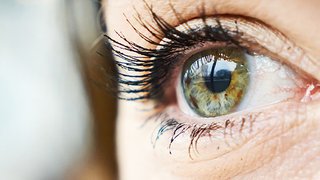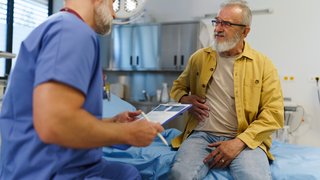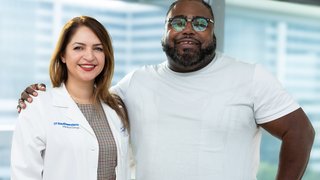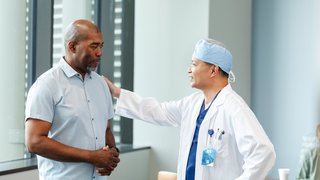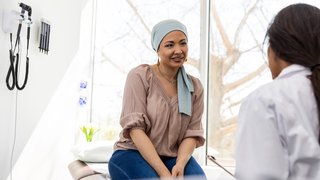
“I noticed something weird was going on with my vision one day at work.” That’s how my patient, Sheri Evans, described her first symptoms of a rare disease that baffled doctors for six years. She later experienced bouts of blindness, fatigue, and leg weakness. They thought it was multiple sclerosis (MS), but after several trips to the emergency room and multiple visits to her primary care doctor and a handful of specialists, she finally received an accurate diagnosis.
Ms. Evans has neuromyelitis optica (NMO), a rare autoimmune disorder similar to MS because it’s characterized by periods of “attack,” when new symptoms flare, followed by periods of remission, when any remaining symptoms are caused by residual scars within the nervous system.
When Ms. Evans, age 58, first visited my clinic, where we care for many sufferers of NMO, she said she felt like she had finally found a team that understood what she was going through. I’m pleased Ms. Evans feels this way, and we’re doing everything in our power to manage her condition, but the reality is that NMO has no proven cure and no approved therapy. NO APPROVED THERAPY. That means the Food and Drug Administration has not approved any drugs for the treatment of NMO.
We have a multitude of therapies we use ‘off label,’ but prospective controlled studies, or studies to help us understand the effects of potential treatments, are lacking, so no drugs have been approved yet.
Working together to find a treatment
It can be difficult to tell a patient there’s no approved treatment for his or her condition. But in Ms. Evans’ case, we’ve been able to offer a glimmer of hope. She’s on a clinical trial testing an NMO drug to see if it decreases the risk of attacks. We’re the only site in Dallas offering access to this international trial.
The trial is collecting data that will ultimately be considered by the FDA in an attempt to prove a therapy works for NMO and is worthy of approval. Ms. Evans says she’s not sure yet if it’s helping her but she also says that’s not the point. She’s participating in this clinical study because it has the potential to help others in the future. She says it may even be part of her purpose in life, to help find a treatment for NMO.
Becoming a research volunteer
Ms. Evans gets what medical research is all about. Without volunteers like her, clinical advancements toward new medical treatments simply aren’t possible. At UT Southwestern, we conduct all types of research. Some studies involve patients with a particular diagnosis, like Ms. Evans; other studies need healthy volunteers, sometimes just to test a device or answer a few questions.
Right now, we’re recruiting all types of research volunteers. We offer an easy way for patients to get involved in research with our Research Participant Registry. Even if you’re not a patient here but are still interested in research, you can be involved. Email us to learn more.
There are many reasons to participate in medical research. Perhaps Ms. Evans’ story will prompt others to think about the future of medicine and generate new volunteers. Helping to treat and cure disease – that’s a powerful legacy to leave for future generations.




